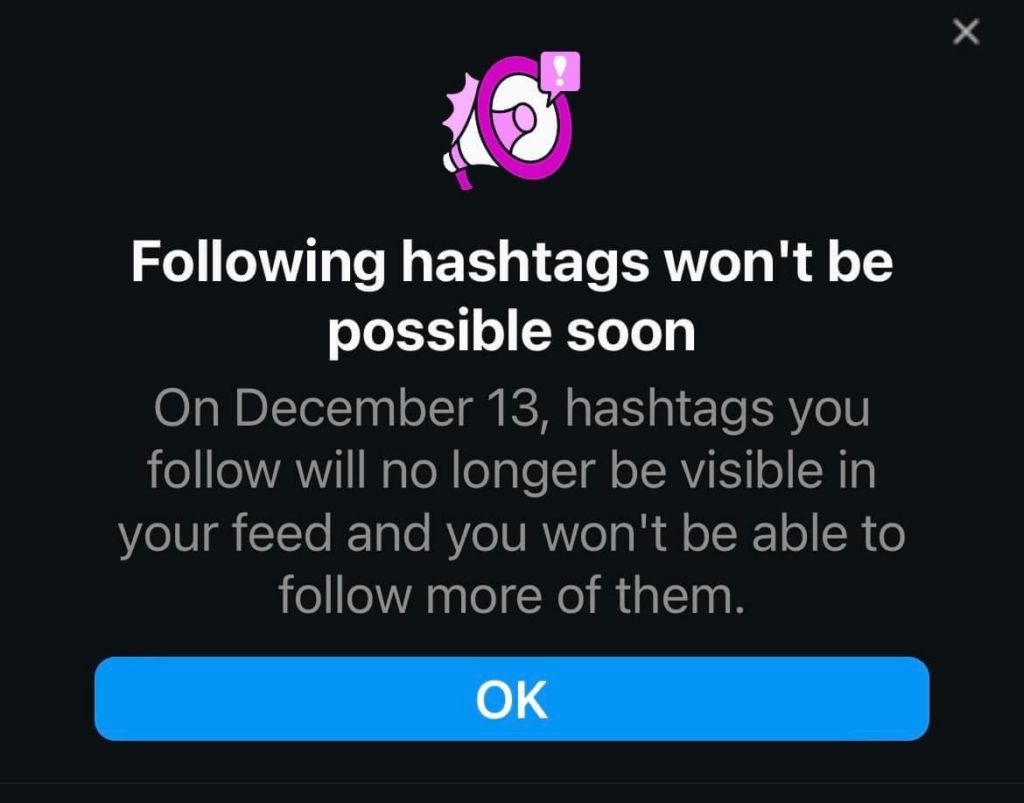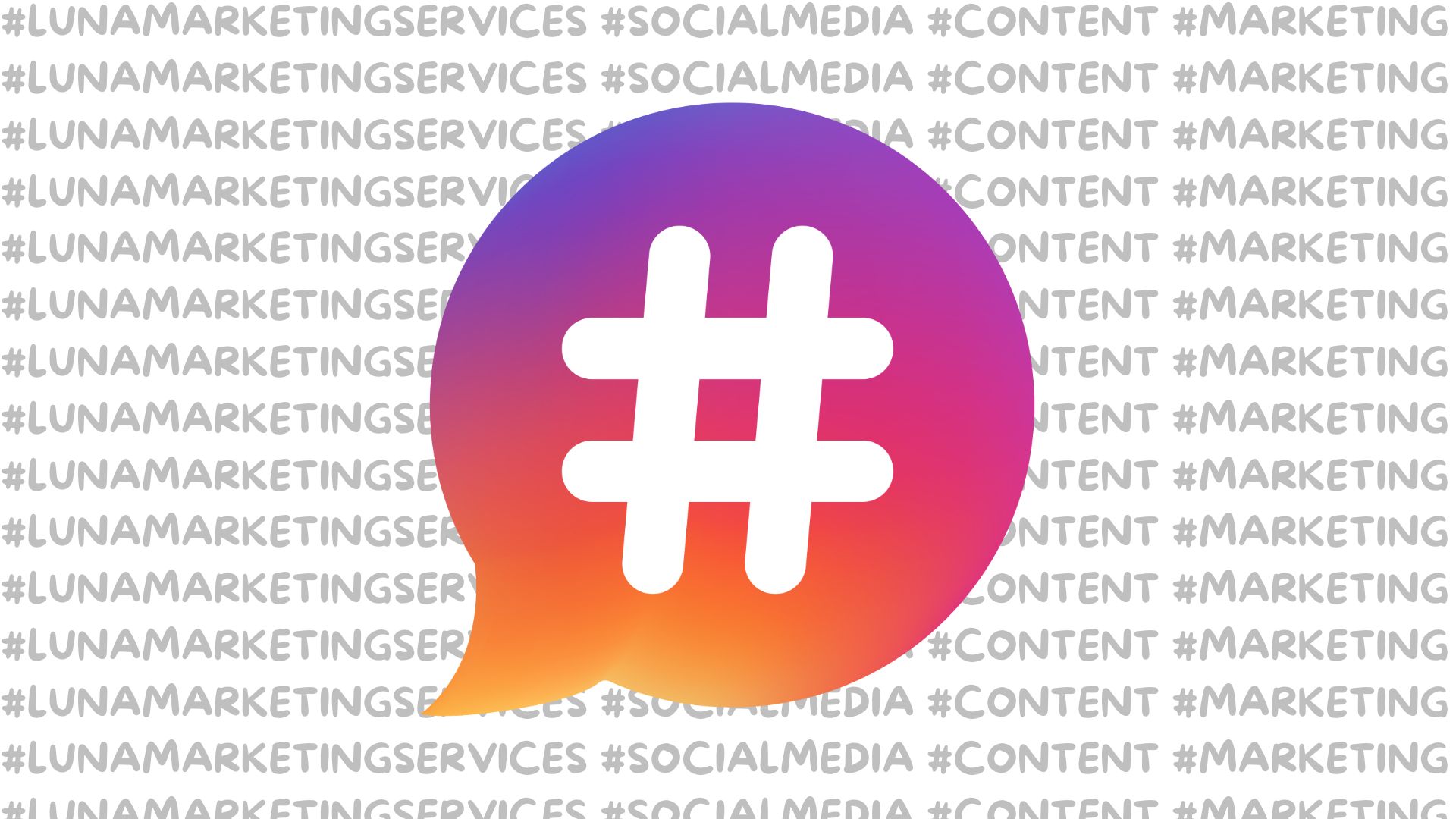Recently, Instagram announced that the option to follow hashtags will soon be gone (and by soon, we mean less than 10 days from now). This has sparked many reactions, from people thinking it is not a big deal to others wondering if this indicates that hashtags are going away.

If I am being honest, that is a great question: Hashtags have changed a lot since they started, and social media has evolved to a point where they might not be as relevant as they were initially. Are they still relevant? Are we starting to see the beginning of the end of an era?
Where Did The Hashtags Come From?
Popular knowledge says hashtags started on Twitter (now X), which is partially true. In 2007, Chris Messina, a USA blogger and product consultant, proposed using the pound sign (#) to group tweets with a common theme. The original idea was simply to help organize social media feeds, creating hyperlinks between groups of topics.
Of course, Twitter being Twitter back then and the Internet being the way it is, the idea was not an immediate boom—actually, people were skeptical about it—but with time and use, they became more and more common and even became useful. Their first big hit was people following the news about the San Diego fire in 2007.
By 2009, Twitter had added hyperlinks to hashtags, and the hashtag had become a common feature on the platform, which soon spread to others, with Instagram adopting them in 2011 and Facebook in 2013.
Hashtags Today
Today, Hashtags are everywhere. From Twitter (now X) threads to Instagram captions, TikTok videos, and even LinkedIn posts, they’ve become a universal tool for categorizing content, boosting visibility, and driving engagement. However, their effectiveness and usage have shifted dramatically, especially as platforms refine their algorithms and users adopt new behaviors.
On Instagram, hashtags were once a surefire way to get your content discovered. Creators and brands would meticulously research and add 20-30 hashtags per post, hoping to land on the Explore page. But in recent years, Instagram has downplayed their significance, with many experts recommending using only 3-5 per post, if any. Instagram’s algorithm currently favors direct engagement metrics like saves, shares, and comments over hashtags—and this new change of removing the following option seems to be decreasing their influence even further.
On TikTok, hashtags like #ForYou and #FYP became cultural phenomena, but they’ve evolved into more of a trend indicator or participation badge than a tool for discoverability. Meanwhile, platforms like LinkedIn and Facebook use hashtags in a more subdued way, where they’re less about visibility and more about tagging content for niche audiences or professional topics.
They are no longer a “one-size-fits-all” solution. Their relevance depends heavily on the platform and the audience you’re trying to reach.
Are Hashtags Still Worth It?
With Instagram’s latest announcement and evolving algorithms across platforms, it’s fair to ask: Are hashtags still worth the effort? And sadly, the answer is more complicated than you will expect. While they might not hold the same power they did a decade ago, they still have their place in a well-rounded social media strategy.
- Discoverability: On platforms like Twitter and TikTok, hashtags still help categorize content and increase visibility. Trending hashtags can connect your posts to larger conversations or viral challenges.
- Community Building: Hashtags remain valuable for fostering niche communities. Campaign-specific hashtags (e.g., #ShareACoke) or event hashtags (e.g., #SXSW2024) are still effective for rallying audiences around a shared experience.
- Brand Identity: Custom hashtags can be a great way to promote your brand or campaign. They make your content easily recognizable and encourage user-generated content.
Of course, while there is still some relevance, how we use hashtags must evolve. First, it’s crucial to understand the platform you are posting on, research the right hashtags, and understand their performance metrics on said platform. It’s also important to experiment with other tools, like keywords, trending sounds, or strategic partnerships, to expand your reach.
The Future of Hashtags
While hashtags might not disappear entirely, their golden age may be behind us. The focus has shifted thanks to AI-driven recommendations, personalized feeds, and contextual relevance that make platforms more rich and personalized—which was possible with hashtags but in a more simplistic way.
The shift begs the question: What comes next?
We’re likely to see more reliance on metadata, content signals, and even advanced AI to help users find the content they want.
What Does This Mean For YOU?
Obviously, one of the main questions is how this will affect you, your business, and your social media performance. And the answer here is complex:
- Your metrics might shift
- Your strategies will have to be more platform-centered
- Your content will need to be well-optimized
- You will need to innovate
- Your reliance on hashtags will need to decrease
- You will have to be more innovative
- Engaging will become even more crucial
You must stay adaptable, keep up with platform changes, and deliver genuine, engaging content that resonates with audiences—with or without hashtags.
So, back to the original question—are hashtags dead? Not really. But they’re evolving, and it’s time to evolve with them.






